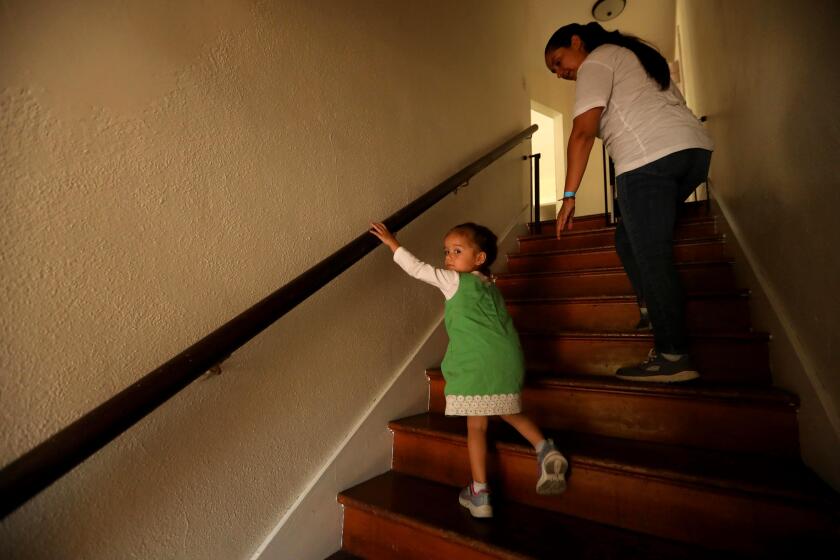9 Bills Limiting Governmental Liability Pass Key State Panels
A delicately balanced package of legislation aimed mainly at protecting state and local government from liability lawsuits sailed through key committees in the Assembly and Senate on Monday, despite opposition from business groups that want similar shields for the private sector.
The Senate Judiciary Committee passed all five of the package’s bills that were before it, while the panel’s counterpart in the Assembly voted in favor of the other four.
9 Bills Linked Together
The nine bills, which together are the product of a compromise between the California Trial Lawyers Assn. and officials of local government, must still win approval in the full Assembly and Senate. The bills are written so that the entire package will fail unless each of the bills is passed by the Legislature and signed by Gov. George Deukmejian by the end of this year.
The success of the package in the two committees Monday seemed to signal a smooth road ahead for the bills, many of which contain provisions that have been stalled for years in the Legislature at the urging of the influential trial lawyers group.
But the lawyers, who in the past have resisted legislation limiting the liability of the government or private companies for negligent acts, are supporting this package in part because local government officials promised in return to abandon their alliance with private sector groups seeking similar reforms.
“We believe that the bills . . . resolve virtually all of the liability issues raised by state and local governments, while continuing to hold guilty and negligent wrongdoers responsible for their actions,” said Browne Greene, president of the California Trial Lawyers Assn.
Among other things, the bills would protect local governments from lawsuits arising out of accidents involving cars fleeing police and would provide that government employees not be considered negligent simply because they violate their agencies’ rules for proper conduct.
One bill in the package would make it more difficult for victims to sue the government for accidents that result from natural conditions on public beaches, such as riptides or submerged rocks, while another would provide a way for public agencies to reduce their financial liability for damages caused by landslides.
The package would also allow public entities to spread their payment of large court-awarded damages over as long as 10 years and would reduce awards by the amount already covered by a victim’s own insurance. Under another bill, local officials could not be sued personally for the acts of their public agency unless the officials themselves were proven to have acted negligently.
“This package establishes good public policy which will allow cities to provide more thorough public safety services without fear of increasing their liability exposure,” said Lowell V. Smith, mayor of St. Helena in Northern California and spokesman for the League of California Cities.
What little opposition to the package that surfaced from individual legislators Monday was quickly limited by the sponsors’ insistence that such a far-reaching compromise could not have been reached without including some elements that offended one interest or another.
Sen. Ed Davis (R-Valencia), for example, said it was “asinine” to allow all cities, no matter what their financial condition, to defer paying settlements of more than $500,000 for as long as 10 years. But only Davis and one other senator opposed the measure, and it passed easily.
In the Assembly committee, meanwhile, Assemblyman Tom McClintock (R-Thousand Oaks), fought several of the measures by arguing that their protections should apply equally to the public and private sector.
“It’s clear to me that this entire exercise is an effort to split our legal system into the privileged and the unprivileged,” McClintock said. “I think this is raw politics at work. This is an attempt to split off one part of the tort reform movement from another, and I’ll have no part in it.”
McClintock was the only member of the committee to vote against any of the four bills the panel approved during its brief hearing.
More to Read
Get the L.A. Times Politics newsletter
Deeply reported insights into legislation, politics and policy from Sacramento, Washington and beyond. In your inbox three times per week.
You may occasionally receive promotional content from the Los Angeles Times.






